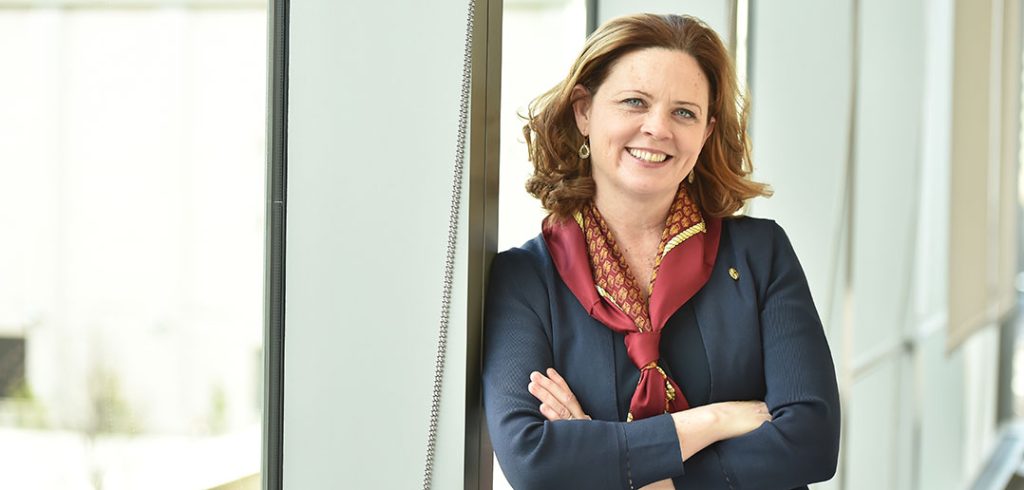On this episode, Tania Tetlow, the first layperson and first woman to serve as the president of Fordham University, joins editor Dominic Preziosi to weigh in on what Catholic colleges and universities can do differently to brace for fresh controversies over free speech, affordability, and the disruptive potential of artificial intelligence. Read excerpts from the podcast below.
“Places like Fordham were really created for those first generation students: the Irish Catholics, the Italians, and the Latinos and so many others. And so it’s a fundamental part of our DNA to be welcoming of all of those who would be excluded by the world, whose talent would be squandered.”
Teaching Civility
“What we have to work hard at as teachers … is to create the kind of freedom where we model for students that they can disagree with us, that we can argue about, not everything—there are facts that we are not going to argue about—but when it comes to that deep world of opinion and judgment and humility of being open and curious and willing to be wrong that is profoundly what we are supposed to do as a university, and is a profound part of the Catholic intellectual tradition.”
“We do this work cautiously, carefully and we wish we had more support and less attacks from the outside world.”
“The freedom to yell at each other is not enough. We really have to learn and teach students how they can persuade each other, how they can be open and humble and all the things that Ignatius taught us, and the work of discernment. It turns out that being self-righteous and sarcastic and mean doesn’t persuade people. It’s not who we are trying to be as human beings, but it’s also singularly ineffective.”
“What we’re trying to teach is the opposite of everything the world is teaching our students.”
Artificial Intelligence and Higher Ed
“This is going to disrupt the economy more quickly and more profoundly than the internet in a major way. So we have to think about pivoting to the kinds of skills our students will need in a world where ideally a lot of the skutt work of life gets done by AI and they are ferried out to do all sorts of magical, wonderful, humanistic things. I’m not sure it will pan out that way.”
“It is our obligation to prepare them for this changing world, to predict where are the jobs of the future because particularly the young people jobs are what will be most quickly eliminated by technology and [hone]those kinds of superior skills of emotional intelligence, diplomacy, of the kind of creativity that can’t be replaced by technology.”
This is a moment when we are going to have to be more nimble and to be a step ahead, not a hundred years behind. It’s a daunting time for all sorts of people, but particularly in education.”

